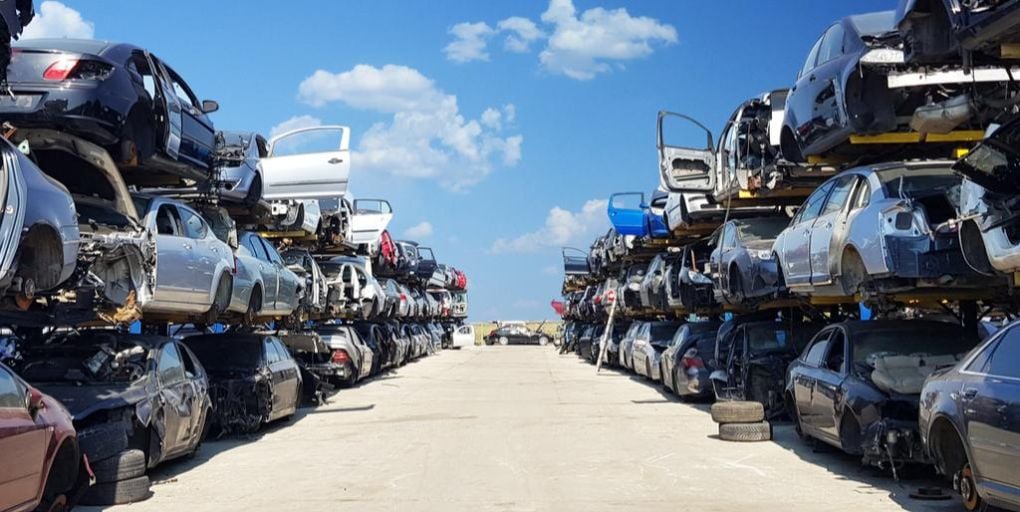When we talk about someone stealing personal items and information out of your car, you probably think about thieves breaking into your car on the street overnight. Or even in your own driveway. But there's another way car thieves can gain access to your belongings and that's in the junkyard. No one likes to think about their car ending up there, but I think the past couple of years have taught us you can never know what the future brings.
Preventing Junkyard ID Theft
So in case that happens to you - say you've sold your car, donated it to charity or you get into an accident and it ends up in one - be aware of the potential for junkyard identity theft. That's when thieves target cars in a junkyard and try to pilfer personal information left behind. These days we're not just talking paper documents - but your personal data left on your car's computer systems.
There are things you can do to prevent this.
Personal Documents:
Make sure personal documents aren't there for the taking in the first place. Avoid keeping documents you don't need in your vehicle. Your license and registration are of course important items to have when you're driving, just don't leave them behind. When you get rid of your car for whatever reason, do a thorough cleaning to make sure there's not a shred of information left that could make you an identity theft victim. Don't miss that receipt left in between the seats, or in the glove box. Clean out pockets and don't miss the cargo area.
Computer Data:
Next, be aware of what TransUnion calls "junkyard cybertheft." Think about all the technology in your car from GPS Navigation, smartphone integration, and car apps and what information it may reveal about you. If you're getting rid of your vehicle for any reason, wipe the car's hard drive or encrypt the sensitive data in your vehicle.
According to the FTC Trade Commission, these are the types of data you want to remove from the electronic system before selling or donating your car:
- Phone contacts and an address book may have been downloaded when you synced your phone with your vehicle.
- Mobile apps' log-in information, or data thats gathered and stored on mobile apps, may be stored in the car.
- Digital content like music may be stored on a built-in hard drive.
- Location data like addresses or the routes you take to home, work, and favorite places may be stored in your navigation system.
- Garage door codes for your home or office may be on your system.
Some vehicles have a setting to restore the car's original factory settings and data. The FTC also suggests disconnecting automaker apps that allow you to control the car's functions or find the car.
Just so you know, I test the Bluetooth of every car I review, but ALWAYS delete my information before turning them back in. Usually, I see two or more journalists info on the cars screen.
These tips go for anytime you sell, donate or trade-in your vehicle.
Another tip that could give you peace of mind in general when it comes to identity theft, is to freeze your credit which locks your credit report. Just remember to unlock it before buying a car so the finance department can access your credit.


.jpg?width=150&name=jerry-headshot.jpg%20(1).jpg)